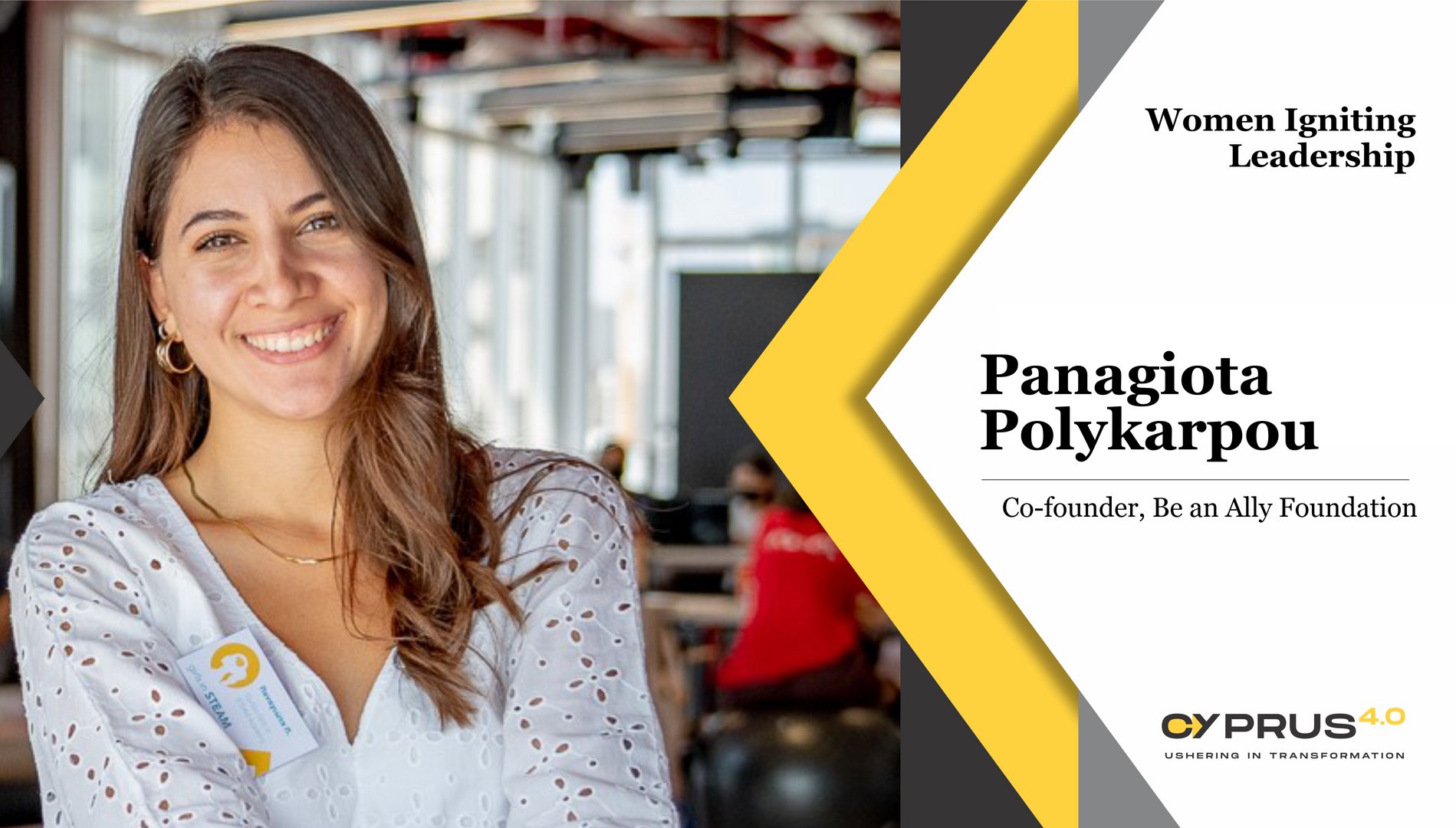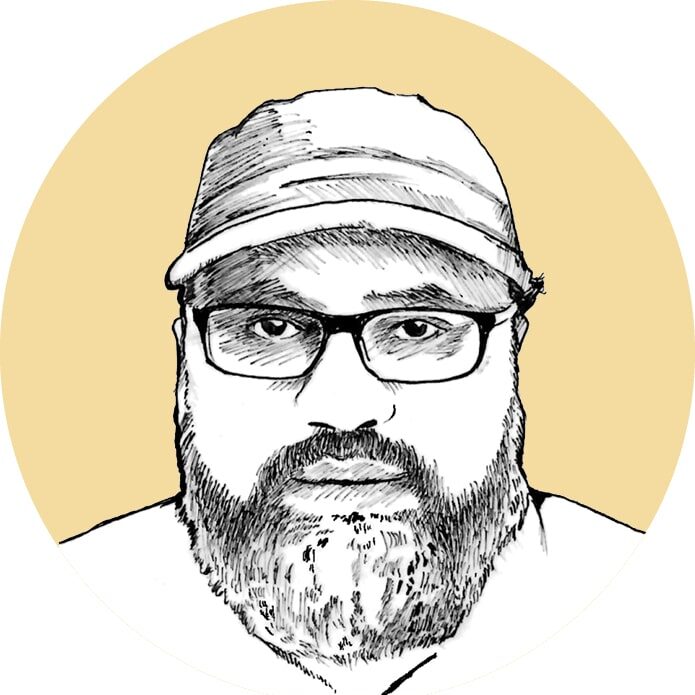Panagiota Polykarpou is the Co-founder of Be an Ally Foundation. Currently, she is a master’s student at the Vienna University of Economics and Business, studying Social Innovation and Management, and she works as a consultant for Gender Equality.
Founded in 2020 by Elenitsa Onisiforou, Eftychia Nearchou and Panagiota Polykarpou, Be an Ally Foundation is a non-profit initiative that brings together civil society and the private sector to find better ways of tackling social challenges related to equity, diversity, and inclusion.
The foundation’s first initiative was Thkio Logia (A few words for Gender Equality) – the first digital platform in Cyprus that raised awareness about the importance of gender equality and the impact it has on society and organisations. “Our newest initiative, Cyprus’ first “Girls in STEAM Academy,” which is co-founded with Anastasia Liopetriti, inspires and trains the next generation of female leaders in STEAM fields.”
As a woman with a pioneering role, how have you played a key part in bringing about change, and how are these changes enhancing your organisation’s potential for future growth?
“I have had the opportunity to contribute to a cause that I am passionate about – providing tools and knowledge that brings us closer to achieving gender equality. Our digital awareness platform had received the NGO CSW65 Young Feminist Award as one of the top-20-initiatives globally committed to equality, reached 400k+ people, and became a book that sold over 2,000 copies.
“More than 100 girls aged 14-18 joined the network of Girls in STEAM Academy with ongoing benefits such as educational programmes, job-shadowing & international experiences, their own podcast, and more.”
How does an increase in the number of women in the workforce benefit businesses and organisations?
“Research has consistently shown that there is a strong correlation between having a diverse workforce, specifically in terms of gender, and improved financial performance. This is because diverse teams are better equipped to compete, thanks to access to a wider talent pool and more effective decision-making.
“Inclusive groups are also able to make high-quality decisions more quickly, without the influence of bias or groupthink.”
What does it mean to be a female pioneer in your industry, in this day and age?
“Running a non-profit initiative that prioritises social impact comes with various challenges. My gender has not necessarily been the sole obstacle. Sustaining social impact initiatives has also been challenging and changemakers like us need to work twice as hard to prove the impact of our activities and attract supporters.
“I have experienced instances where others have doubted my abilities because of my age; however, these experiences have only strengthened my resolve to continue to push forward and break down barriers for future generations of women in leadership roles.”
Do you believe men still dominate most influential companies in the world today? If so, how does one break down the barriers of this gender imbalance?
“The numbers indicate that men still hold the majority of decision-making positions across various industries globally. However, the problem is not having men in leadership positions, but rather not having people in leadership positions that actually prioritise inclusion and ignore stereotypes and biases. Since men still occupy most leadership roles, building an inclusive culture needs to be emphasised as a required leadership practice. Implementing gender-sensitive practices for hiring and promotion can result in better representation at all levels. Training programmes are also vital in addressing our biases, but holding our teams and leadership accountable for promoting inclusivity can make a significant difference.”
How would you describe the gender dimension in Cypriot society based on your own experience?
“There are various cultural, social, and economic factors that contribute to gender dynamics in Cyprus. Although women and individuals who identify as part of the LGBTQ+ community have made strides towards equality and representation in recent years, traditional gender roles and expectations still exist, and women – but also men – are being subject to harmful stereotypes.
“The most severe manifestation of inequality is domestic and gender-based violence, which remains a critical issue in Cyprus and requires our immediate attention. To address this, ongoing efforts from civil society must be supported by sustainable government resources and assistance.”
How are your pioneering efforts preparing your company for a future that is more sustainable?
“Achieving a sustainable future entails various actions, one of which is addressing inequalities and ensuring the engagement and inclusion of marginalised groups. Our initiatives are designed to equip Cypriot civil society, young girls, and workplaces with the necessary knowledge and tools to become frontrunners of an inclusive future.
“We believe that empowering these groups through education, advocacy, and networking opportunities will not only contribute to a more equitable society but also support the development of sustainable practices. By prioritising inclusivity and diversity, we hope to create a more just and sustainable world for future generations.”







Click here to change your cookie preferences